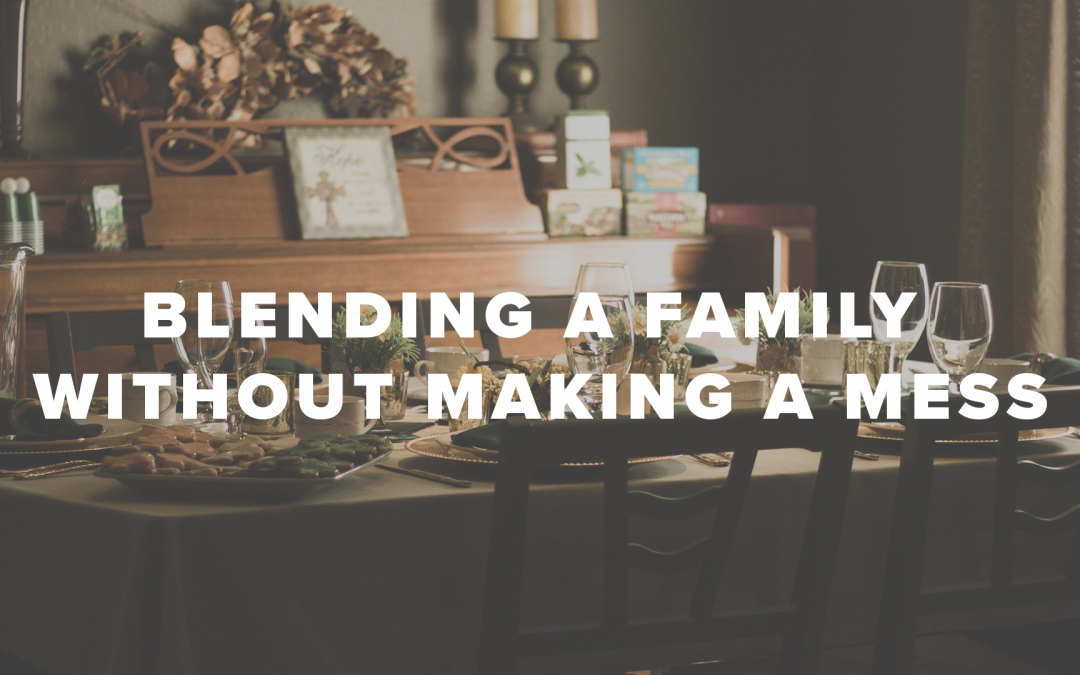Today more than ever, the typical family in our community is often a blended one. Many of us grew up with a concept of this either from our own home or just watching The Brady Bunch. But the problems that blended families can sometimes have are not always solved in a 30 minute sitcom. They can be messy.
I’ve asked our Celebrate Recovery Pastor, Juan Palomino to guest blog on this topic. Juan is an incredible leader and an amazing example of how God can transform a life. Juan has learned from his mistakes and his successes. Thank you Juan and Jenna for sharing your life with us!
My wife and I have been married for seven years and we have six kids between us. I had four kids from previous relationships, and my wife and I have two kids together. So we have a mine-and-ours situation. Our kids range in age from 14 months to 18 years old! While there are many challenges in blending a family, here are a few things we are learning to keep it from becoming a mess:
-
Give your kids grace for different parenting styles they experience.
We have noticed that when my kids come for their weekend stay they act differently on the first day until they adjust and realize that they are back at Dads house. There are different rules and expectations in our home than at their mom’s. Even though we try our very best to be on the same page with their mom, it doesn’t always work out that way. Here are a few examples: Going out with their friends, picking up after themselves, praying before meals, going to church, and using their manners. Needless to say a lot of grace needs to be extended toward our children. It’s difficult for them to try to keep track of multiple rules from multiple parents.
-
Give your kids time to build trust.
My kids already saw me fail in my previous relationships. So, their expectation is that this new relationship is only temporary like the last one. So the trust, respect and love of each of my children toward my new wife varies and has taken time to develop… a lot of time. I have learned that I can’t force my kids to trust, respect or love my wife. Instead, I need to show them that I respect, love, and trust her enough to be married to her and that our marriage will last. This is a never-ending balancing act with my kids.
-
Establish boundaries with the ex-spouse.
Communication with an ex- spouse is important but there has to be limits. I always make sure that my wife is aware of the context of the conversation between my ex and I. The problem here is that you may have moved on with your life, but maybe she hasn’t. Also, the time of day that my ex’s and I communicate needs to be appropriate for my wife. There has to be an emergency in order for my ex to be contacting me at 1 AM.
-
Investing in one-on-one time with your kids.
I was ignorant of the fact that my kids were going to need me more than ever. I learned through Divorce Care that kids go through seven emotional stages that they experience when their parents get divorced.
- Bewilderment: Parents’ separation or divorce leads to a feeling of bewilderment. Their little minds work endlessly trying to figure out what it is they did to cause this horrible tragedy.
- Confusion: Confusion reigns in so many of these kids. One day it seems as though life is going along smoothly and the next your parents are telling you there is going to be a divorce.
- Loneliness: Children may experience extreme loneliness when one parent moves out and the other parent is consumed by the shock of the divorce.
- Ashamed: Children often feel ashamed by what their parents are doing or how they are acting. This is particularly true for tweens and teens when one parent starts dating.
- Jealous: Kids will often be jealous when the parent who has moved out, comes by to visit the parent that stayed. The child wants all of the attention. If one of their parents dates someone with children, the green monster rears its ugly head high and often.
- Joyful: Kids can’t grieve 24/7. They have to take breaks and be a kid.
- Overwhelmed: With so many feelings floating around in a little brain, life can simply become overwhelming.
Understanding these stages help me to know how to help each child process their feelings uniquely. This learning only happens over time and individually. Making time to go to games, dates, dinner, and even running errands together allows us to process these things.
My kids still show some of these symptoms even though it’s been seven years. But, I can humbly say that by the grace of God, we have all made a lot of progress towards healing and becoming a happy blended family.
Thanks Juan!

